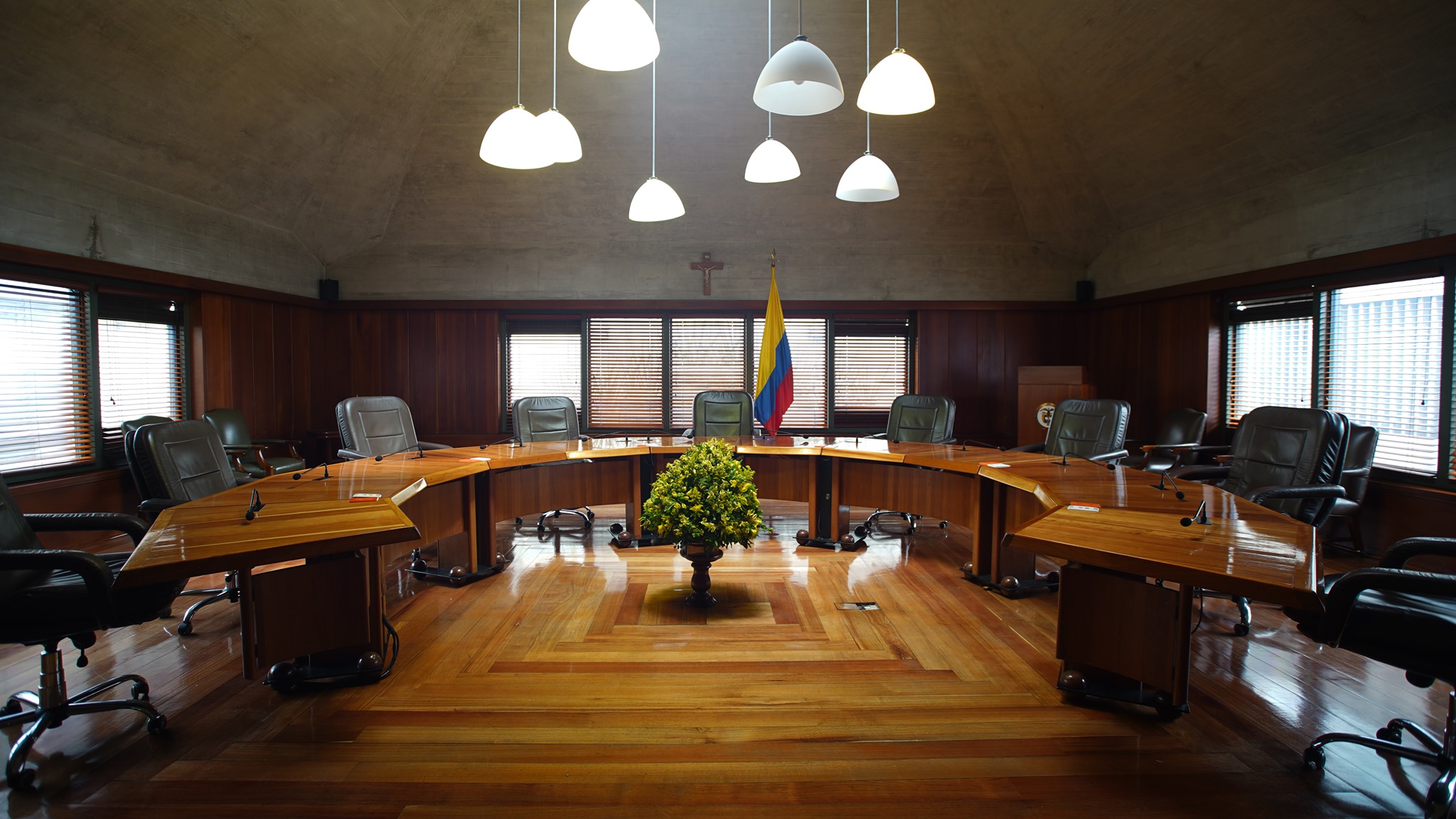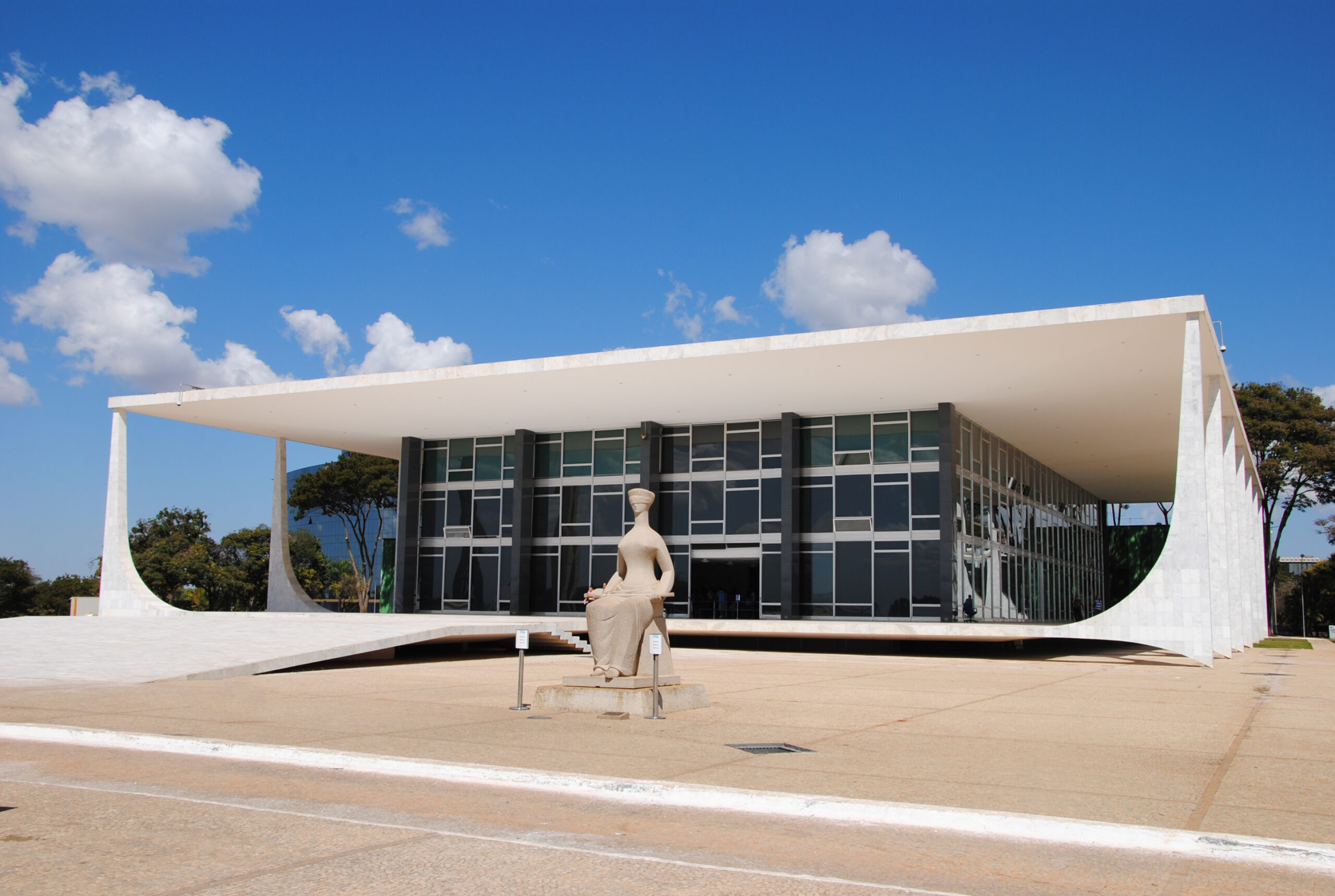Unconstitutionality of revisable life imprisonment.
Life imprisonment violates fundamental rights and undermines human dignity, according to Colombia’s Constitutional Court.
Colombia. Constitucional Court. Sentencia C-294/21
The Colombian Congress reformed the Colombian Constitution to remove the prohibition of life imprisonment, by the legislative act 01 of 2020 and established its imposition as an exception and as the most serious penalty for crimes committed against the life and sexual integrity of minors.
However, the Colombian Constitutional Court declared that this amendment was contrary to the Constitution because, through this reform, the legislator substituted essential and defining elements of the Constitution, such as the Social State of Law and the duty of the State to respect, guarantee and protect the human rights of all persons.
The reasons that led the Colombian Court to declare the unconstitutinality of Legislative Act 01 of 2020 will be explained below.
The re-socialising purpose of custodial sentences and human dignity.
It was explained by the Court that human dignity implies understanding human beings as an end in themselves and recognising their right to self-determination and autonomy.
It also stated that re-socialisation is a way of realising human dignity, as it recognises the capacity for self-determination of a convicted person and the possibility of returning to live in the community.
The Court contrasted that life imprisonment means that the system denies the person’s capacity for repentance, reflection and change and forever marginalises him or her from society, and, it considered that this penalty suppresses life and deprives of a future, as an “extermination of hope”.
Purpose of the penalty
The Court considered that, with the life sentence, the human being is used as a tool of the punitive power of the State to achieve social ends that it considers more valuable, such as prevention in general, ignoring the fact that human dignity is suppressed by preventing a person who has served a sentence from returning to live in society.
The Colombian Court recognised that, although the State can restrict freedom as a punishment, it cannot abolish it, as punishment, in a social state based on human dignity, has as its aim the re-socialisation of the person.
Resocialisation
Thus, the Court explained that resocialisation is incompatible with penalties which, either because of their duration or their consequences, are desocialising, since the State must provide the means and conditions to avoid aggravating desocialisation and make socialisation possible. Hence, the Court considered that human dignity is intrinsically related to the resocialising purpose of the custodial sentence.

Life imprisonment: Cruel, inhuman, and degrading punishment.
The Colombian Court also explained that the penalty of life imprisonment implies analysing the conduct from the point of view of the dangerousness of the person and not the conduct itself, which is why it is a sanction that seeks to marginalise a person from society. Thus, the Court considered that forcing a person to abandon the hope of returning to a free life is a denial of human dignity.
Furthermore, the CCourt considered that the sentence of life imprisonment, without the possibility of review and without the real alternative of parole, constitutes a cruel, inhuman and degrading punishment prohibited by the standards of international human rights law; and, in the case of minors, it constitutes a disproportionate punishment that violates the rights of the convicted child or adolescent.
The possibility of reviewing the sentence of life imprisonment does not satisfy the guarantee of re-socialisation and respect for the human dignity of the convicted person.
On the other hand, the Colombian Constitutional Court considered that the revisable life imprisonment introduced in the Colombian Constitution was uncertain and produced various issues, such as the fact that the review mechanism did not allow to know the precise moment at which it would be carried out, in addition to not contemplating an expectation of freedom, as it depended on the authority’s assessment of re-socialisation.
Furthermore, the constitutional reform allowed a wide margin to legislate, without ensuring the principle of reducing the sentence.
Likewise, the constitutional court, relying on the author Ferrajoli, considered life imprisonment as a paradox, as this penalty is only acceptable if it is reviewed and reduced, thus abrogating its nature of perpetuity, as well as causing the following rights and principles to be violated:
- Right to equality: This right is infringed by subjecting the conditional release of one convicted person to the decision of the jurisdictional authorities.
- Principle of jurisdictional sentences: The judge cannot adjust the sentence fairly –to reduce it or increase it- according to the specific and circumstances of the case.
- Proportionality of sentences: In the case of persons of different ages, the punishment will be more severe for the younger ones without there being -necessarily- criminal policy reasons that justify one person being imprisoned longer than another for the same offence.
Consequently, the Court concluded that the possibility of review regulated in the constitutional reform creates an arbitrary scenario of uncertainty that is inadmissible in a state governed by the rule of law, and that, de facto, the principle of sentence reduction and the right to hope for release are annulled.
Non-applicability of the Rome Statute.
On the other hand, the constitutional court pointed out that although it ruled before that the Rome Statute did not disregard the Colombian constitutional block, this is because such international legislation is applicable to the commission of crimes of international relevance and institutes a faculty for international judges and not national judges.
In addition, the court considered that Rome Statute contemplates a clear limit for its review, in accordance with the aim of re-socialisation and respect for human dignity.
Life imprisonment as a mechanism to protect the rights of children and adolescents.
Regarding the justification for the incorporation of life imprisonment, the Colombian Constitutional Court highlighted that the constitutional reform was aimed at reducing the commission of crimes against life and physical and sexual integrity committed against children and adolescents, through the most severe punishment.
However, the Constitutional Court considered that there is a lack of empirical evidence to show that life imprisonment is the most appropriate measure to reduce recidivism of these crimes, as well as their effective prevention.
The Court considered that it is not explained why, to achieve the protection of children, this penalty is preferable to others that may have a lesser impact on the convicted person.
Furthermore, the Court emphasised that the constitutional mandate of the prevalence of the rights of children and adolescents and the adoption of measures for their special protection does not mean “curtailing” other constitutional principles or abolishing other rights, such as the human dignity of the offender.
Role of the Constitutional Court.
Importantly, the Court clarified that its ruling did not imply that those responsible for crimes against children were not responsible, and that such conduct must be investigated and punished according to its gravity.
In this context, the Court explained that its role is to preserve the Constitution and the social rule of law based on human dignity, while the other powers must refrain from acts that violate human dignity and this duty must be “observed without distinction and on a plane of universal equality of human beings“.
Impacts of life imprisonment on physical and mental health.
In another perspective, the Colombian Court considered it necessary to highlight the impact on mental and physical health that prolonged deprivation of liberty has on people. Initially, the constitutional court stated that studies in criminology, sociology and psychology have determined that prison as a punishment produces harm to the person deprived of liberty; although, it clarified that, in the right proportion and with the appropriate conditions of re-socialisation, prison is valuable for the improvement of the behaviour of the person in society.
The constitutional court recognised that, from the experiences in which life imprisonment is applied, the violation and disregard of the human dignity of the convicted person is inevitable.
Based on studies, the Court emphasised that in the case of life imprisonment – with or without the possibility of review – the combination of the sentence and the indeterminate term of imprisonment reduces the levels of confidence of the person and increases the levels of anguish and hopelessness, which leads to various mental disorders.
In addition, the Colombian court stated that prison conditions and rehabilitation facilities are essential for re-socialisation, as without these conditions the damage to physical and mental health is irreversible; however, the Court found that the Colombian prison system “maintains an unconstitutional state of affairs”, derived from the situation of overcrowding, which prevents from guaranteeing minimum services and dignified conditions of custody, and therefore, causes the violations of convicts fundamental rights.
Consecuently, the Colombian Court concluded that the constitutional reform not only replaces defining elements of the Political Constitution, but also “ignores the phenomenon of prison overcrowding and its lack of capacity to guarantee effective re-socialisation”.

Broader protection in the Colombian system than in the international standard.
The Colombian Constitutional Court considered it necessary to clarified that, although the international standard does not prohibit reviewable life imprisonment, in the case of Colombia its inclusion deforms the social and democratic rule of law based on human dignity, as it dehumanises criminal policy and ignores the primary purpose of re-socialisation.
The Colombian court explained that, although in some legal systems the death penalty has been replaced by a revisable prison sentence as a humanising standard of punishment, based on the minimum standards established by international human rights law, in the case of Colombia, the prohibition of the death penalty and life imprisonment constituted a principle of the 1991 Constitution, and these prohibitions are inherent to the constitutional and the Colombian Social State rule of law identity
Hence, the Colombian Court stated that revoking the standard established by the constitution and allowing revisable life imprisonment not only implies substituting a defining aspect of the Constitution, but also reduces the most protective standard in favour of the individual and, therefore, constitutes a regressive measure.

Conclusion
Based on the above reasoning, the Colombian Constitutional Court declared the constitutional reform unconstitutional, concluding that eliminating the restriction of life imprisonment replaces elements that change the meaning of the Constitution, and disregards human dignity as the basis of the Social State of Law, which the legislature is not allowed to do.
See the following video (Spanish):
Reference:
- Colombia. Plenary of the Constitutional Court of Colombia. Judgment C-294/21. Retrieved from:: https://www.corteconstitucional.gov.co/Relatoria/2021/C-294-21.htm






